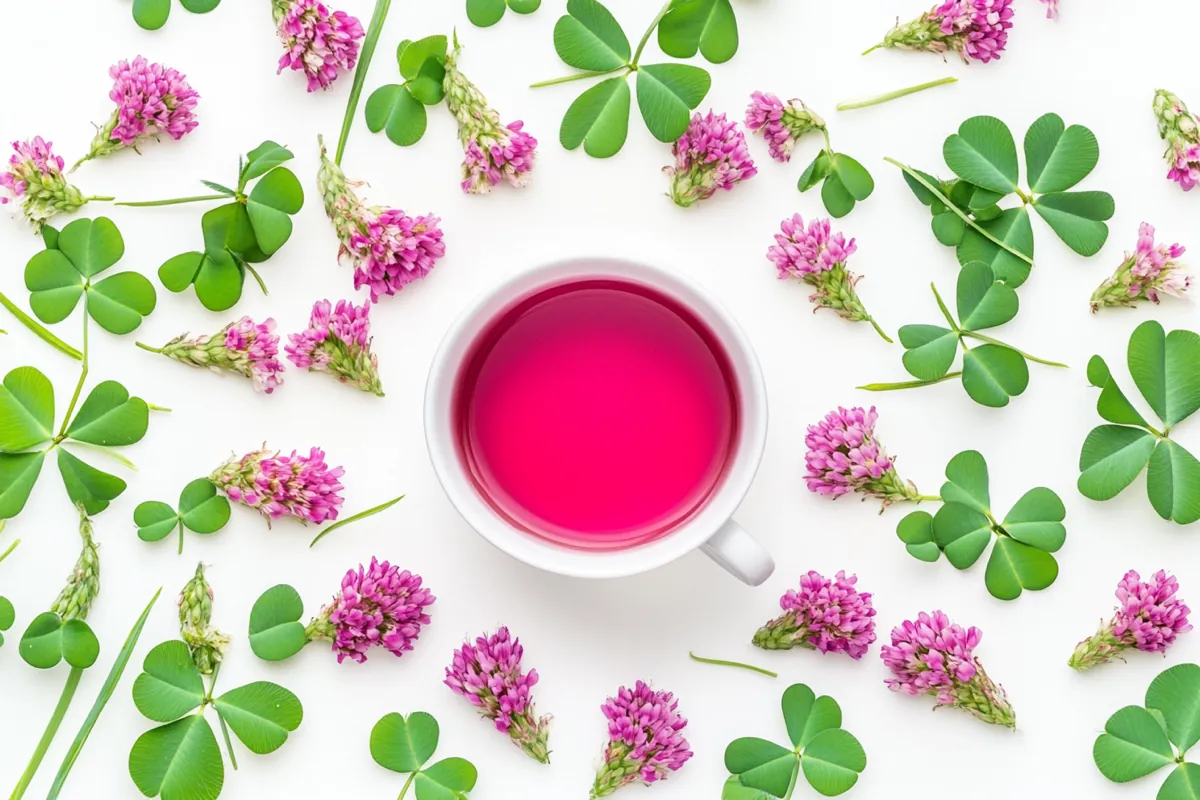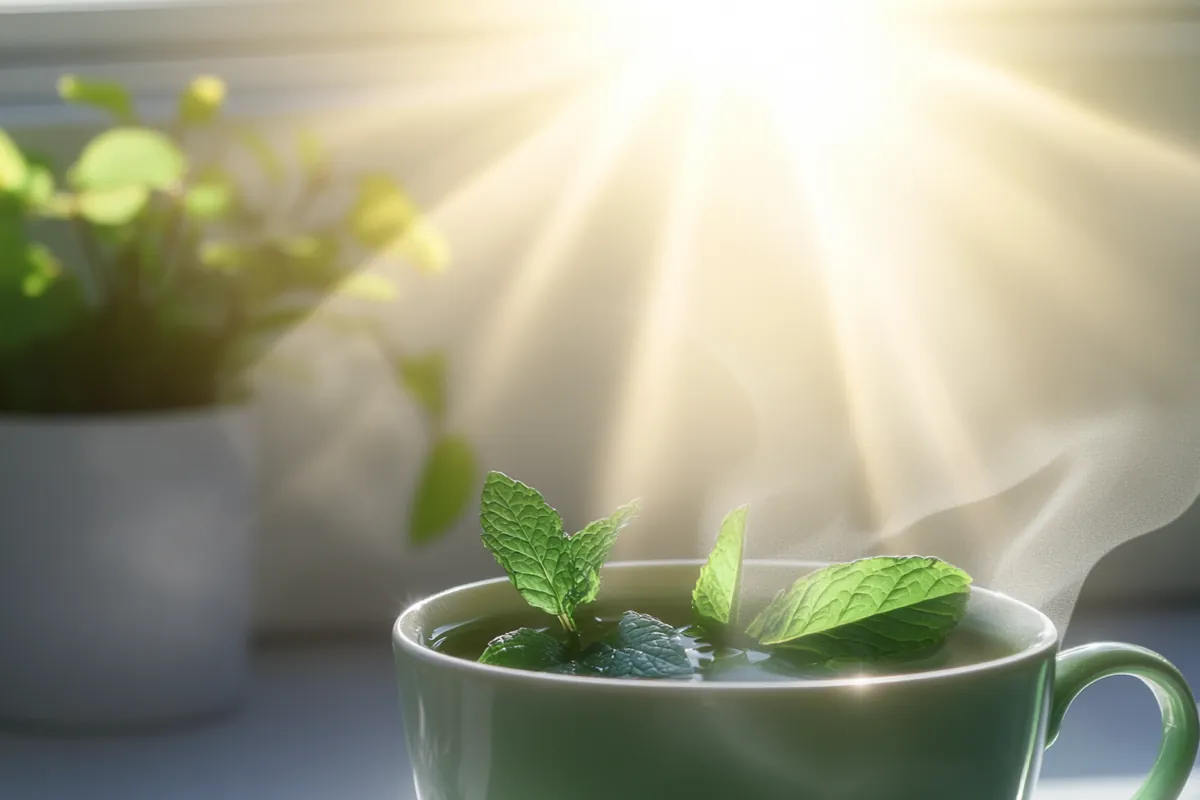Tea is more than just a beverage; it’s a tradition steeped in history and culture across the globe. With countless varieties, each offering unique health benefits, you might wonder, what is the healthiest tea to drink? In this article, we will explore different teas and their health advantages, particularly focusing on those that can boost your well-being.
Table of Contents
Introduction to Tea and Its Health Benefits
Tea has been enjoyed for centuries, bringing comfort and health benefits to many. From soothing herbal blends to robust black teas, each cup can offer various advantages. Research indicates that tea consumption may lower the risk of chronic diseases, improve mental alertness, and contribute to overall health.
Historical Context of Tea Consumption
The history of tea dates back to ancient China, where it was discovered accidentally by Emperor Shen Nong in 2737 B.C. Initially used for medicinal purposes, tea spread across Asia and eventually worldwide. Different cultures developed unique rituals and styles of tea preparation, making it a vital part of daily life in many regions. Today, tea is celebrated not just for its flavor but also for its health benefits.
Nutritional Components of Tea
Tea is rich in nutrients that can positively impact your health. Various teas contain antioxidants, vitamins, and minerals that support well-being.
Antioxidants and Polyphenols
One of the key components of tea is its high antioxidant content. Antioxidants combat free radicals in the body, reducing oxidative stress and inflammation. Polyphenols, particularly found in green tea, are known for their protective effects against heart disease and certain cancers.
Vitamins and Minerals in Tea
In addition to antioxidants, tea can provide essential vitamins and minerals. For example, green tea contains vitamin C and some B vitamins, while herbal teas can be a source of minerals like potassium and magnesium. These nutrients contribute to a balanced diet and support various bodily functions.
The Best Tea to Drink in the Morning on an Empty Stomach
Starting your day with tea can be a refreshing and healthy choice. Drinking tea on an empty stomach can kickstart your metabolism and provide energy. However, not all teas are created equal for morning consumption.
Benefits of Drinking Tea on an Empty Stomach
When consumed first thing in the morning, tea can hydrate your body and stimulate digestion. It also helps in detoxification, flushing out toxins accumulated overnight. Moreover, certain teas can enhance mental clarity and focus for a productive day ahead.
Top Teas for Morning Consumption
Here are some excellent choices for your morning tea routine:
Green Tea: A Refreshing Start
Green tea is a popular choice for its numerous health benefits. It is loaded with antioxidants and can enhance brain function. Additionally, it may aid in weight management by boosting metabolism.
Herbal Tea: Chamomile or Peppermint?
Herbal teas, particularly chamomile and peppermint, offer calming effects. Chamomile may help reduce anxiety, while peppermint can aid digestion and provide a refreshing start to your day.
Black Tea: A Classic Choice
Black tea is another fantastic option. It contains caffeine, which can provide a necessary energy boost. Furthermore, black tea has been linked to improved heart health and better gut bacteria.

Best Tea for Women’s Health
Tea can play a significant role in supporting women’s health. Many varieties offer specific benefits that address common health concerns. From hormonal balance to skin health, the right tea can be a powerful ally.
Importance of Tea for Women’s Health
Tea has unique properties that can aid women’s health, especially during various life stages. For example, certain teas can help alleviate symptoms associated with menstruation, menopause, and pregnancy. Additionally, the antioxidants in tea can combat oxidative stress, which is linked to various health issues. By incorporating tea into their daily routine, women can benefit from enhanced wellness and vitality.
Specific Teas Beneficial for Women
Here are some of the best teas that specifically benefit women’s health:
Red Clover Tea: Hormonal Balance
Red clover tea is known for its natural isoflavones, which can mimic estrogen in the body. This makes it an excellent choice for women experiencing hormonal fluctuations, such as those during menopause. Drinking red clover tea may help reduce hot flashes and improve mood.
Rooibos Tea: Rich in Antioxidants
Rooibos tea, naturally caffeine-free, is packed with antioxidants. These antioxidants can help fight inflammation and support skin health. Additionally, rooibos tea is rich in minerals like calcium and magnesium, contributing to overall wellness. This makes it a great choice for women looking to enhance their beauty routine from within.
Green Tea: Weight Management and Skin Health
Green tea is celebrated for its weight management properties. It may boost metabolism and aid in fat burning, making it a popular choice for those looking to maintain a healthy weight. Additionally, its high antioxidant content supports skin health, helping to reduce signs of aging and promoting a radiant complexion.
Best Tea for Immune System Support
Maintaining a strong immune system is crucial for overall health. Certain teas can provide powerful support in this area, helping to ward off illness and promote wellness.
Role of Tea in Boosting Immunity
Tea can play a significant role in strengthening the immune system. Many varieties contain compounds that enhance immune function and provide protection against pathogens. Regular consumption of immune-boosting teas can contribute to better health, especially during cold and flu seasons.
Top Immune-Boosting Teas
Here are some of the best teas that can help boost your immune system:
Elderberry Tea: A Natural Defense
Elderberry tea is renowned for its immune-boosting properties. Elderberries are rich in vitamins A and C, which are essential for immune health. This tea has been shown to reduce the duration and severity of colds and flu, making it an excellent choice during flu season.
Ginger Tea: Anti-Inflammatory Properties
Ginger tea is not only warming and soothing but also boasts strong anti-inflammatory properties. Ginger can help reduce inflammation in the body, which is crucial for maintaining a healthy immune system. Additionally, ginger tea can alleviate nausea and digestive discomfort, promoting overall well-being.
By incorporating these teas into your routine, you can effectively support your immune system and improve your overall health.

Daily Tea Consumption: What is the Healthiest Tea for You?
Incorporating tea into your daily routine can offer numerous health benefits. The key is to choose the right types of tea that align with your health goals. This section will explore the advantages of drinking tea every day and highlight some of the best options.
Benefits of Incorporating Tea into Daily Routine
Drinking tea daily can lead to improved hydration and enhanced well-being. Tea is a low-calorie beverage that can replace sugary drinks, helping to reduce calorie intake. Additionally, the antioxidants in tea can combat oxidative stress, potentially reducing the risk of chronic diseases. Moreover, regular tea consumption has been linked to improved heart health and better mental clarity, making it a smart choice for overall wellness.
Best Teas to Drink Every Day
Here are some of the healthiest teas to consider for daily consumption:
White Tea: Subtle Flavor and Health Benefits
White tea is one of the least processed teas, which helps retain its high levels of antioxidants. Its delicate flavor makes it a delightful choice any time of day. White tea has been linked to improved skin health and may even aid in weight management. For those looking for a light, refreshing option, white tea is an excellent pick.
Oolong Tea: A Versatile Option
Oolong tea is a partially fermented tea that falls between green and black tea in terms of flavor and health benefits. It may support weight loss by boosting metabolism and fat burning. Additionally, oolong tea is known for its ability to improve mental alertness and reduce stress. This makes it a versatile option for those seeking both health benefits and a flavorful drink.
Herbal Teas: Caffeine-Free Choices
Herbal teas, such as chamomile and peppermint, are naturally caffeine-free and perfect for any time of day. They come with various health benefits, including improved digestion and relaxation. Herbal teas can also be beneficial for sleep, making them great choices for evening consumption.
What is the Healthiest Tea to Drink First Thing in the Morning?
Starting your day with tea can set a positive tone for the hours ahead. Choosing the right tea in the morning can provide the energy and health benefits you need to kickstart your day.
Ideal Characteristics of Morning Teas
The best teas to drink in the morning should be refreshing, energizing, and beneficial for digestion. Ideally, they should contain moderate caffeine levels to provide a gentle boost without causing jitters. Additionally, morning teas should be rich in antioxidants and nutrients that support overall health.
Recommended Teas for Morning Routine
Here are some recommended teas to consider for your morning routine:
Green Tea: With its moderate caffeine content and rich antioxidant profile, green tea is a fantastic choice to start your day. It can enhance focus and metabolism.
Black Tea: This classic morning beverage has a higher caffeine content, making it a great option for those needing an extra energy boost.
Herbal Infusions: If you prefer caffeine-free options, herbal teas like peppermint or ginger can invigorate you while aiding digestion.
By choosing the right tea to start your day, you can enjoy a refreshing and health-packed beverage that enhances your overall well-being.

Which Tea is Known as the Superfood?
In the world of health and wellness, the term superfood is often thrown around. It generally refers to foods rich in nutrients that are extremely beneficial for health. So, what tea fits this description?
Defining ‘Superfood’ in Relation to Tea
When it comes to tea, the definition of a superfood typically hinges on its antioxidant content, health benefits, and nutritional profile. The most revered teas often contain high levels of vitamins, minerals, and bioactive compounds that promote health. These attributes can help prevent diseases and improve overall well-being, making them standout choices in the realm of healthy beverages.
Teas that Fit the Superfood Category
Several teas can be classified as superfoods due to their exceptional health benefits:
Matcha: The Green Tea Superfood
Matcha is a powdered form of green tea that is gaining popularity for its potent health benefits. It contains a concentrated amount of antioxidants, specifically catechins, which are known for their cancer-fighting properties. Additionally, matcha provides a steady energy boost due to its unique combination of caffeine and L-theanine, promoting mental clarity without jitters. This makes matcha an ideal superfood for those seeking both energy and health.
Pu-erh Tea: Fermented Benefits
Pu-erh tea is a fermented tea originating from China. Its unique fermentation process gives it a distinctive flavor and numerous health benefits. Studies suggest that pu-erh tea may aid in weight loss and cholesterol management. Additionally, it is rich in probiotics, which can support gut health. This makes pu-erh tea a valuable addition to a health-conscious diet.
Conclusion: Final Thoughts on the Healthiest Teas
In conclusion, the question of what is the healthiest tea to drink? can be answered with various options depending on individual needs and preferences. From green tea’s rich antioxidant profile to the unique benefits of herbal teas, there’s a perfect cup for everyone. Incorporating a variety of these teas into your daily routine can lead to improved health and well-being. So, whether you’re sipping on a soothing chamomile before bed or starting your day with invigorating matcha, each cup is an opportunity to enhance your health.
FAQ
Here are some frequently asked questions regarding tea and its health benefits:
What tea is the healthiest for you?
The healthiest tea varies by individual needs, but green tea is often considered the best due to its high antioxidant levels and numerous health benefits.
What tea is okay to drink every day?
Most teas, including green, black, and herbal varieties, can be consumed daily. However, it’s essential to choose caffeine-free options in the evening to promote better sleep.
What is the healthiest tea to drink first thing in the morning?
Green tea is an excellent choice for the morning due to its moderate caffeine content and health benefits. It can boost metabolism and enhance focus.
Which tea is known as the superfood?
Matcha is widely recognized as a superfood due to its concentrated levels of antioxidants and health-enhancing properties.




